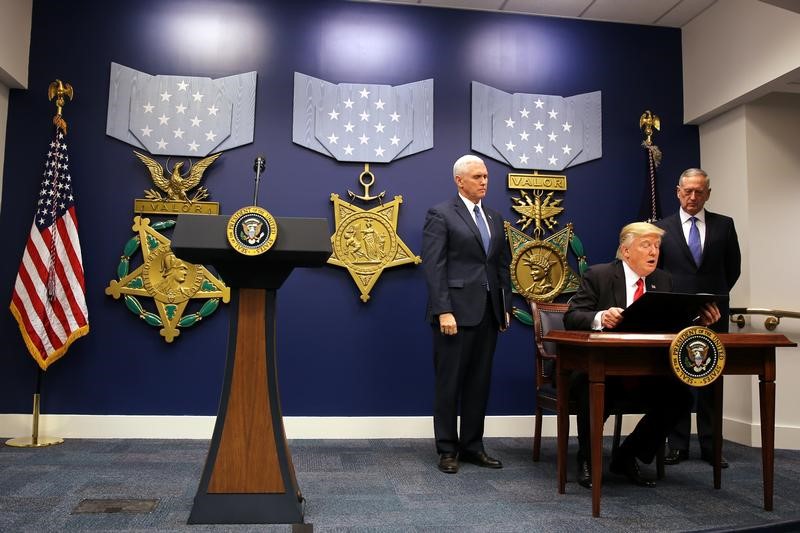Investing.com’s stocks of the week
By Yeganeh Torbati
WASHINGTON (Reuters) - The U.S. State Department will not conduct its regular daily press briefing until a new secretary of state is confirmed, leaving the main U.S. agency responsible for dealing with the rest of the world silent amid the uproar over President Donald Trump's executive order on immigration.
Trump on Friday announced a four-month hold on allowing refugees into the United States and a temporary bar on travelers from seven Muslim-majority countries. The decision provoked a widespread backlash in foreign capitals, documented in cables U.S. embassies sent to Washington.
Typically, in the aftermath of a major foreign policy shift, a State Department spokesperson would appear on camera within days to take questions from reporters and defend or explain the U.S. positions on different issues.
The State Department has not briefed since the day before Trump's Jan. 20 inauguration, however, and on Monday a department spokesperson said no one will appear at the podium until the U.S. Senate confirms a new secretary of state.
"At that point, we will update the press corps on our posture," the spokesperson said.
Trump's desire to break with previous U.S. policies on issues including Israel's construction of settlements, U.S. trade pacts, and cooperation with Russia suggests that State Department officials have not been given guidance on what positions they should articulate.
"Until you know what policy you're advancing, it doesn't do you any good to get out there," said Richard Boucher, a former State Department spokesman who briefed reporters on the first weekday of the George W. Bush administration, in January 2001. "The decision not to brief is a simple admission that they don't know what to say."
The Senate is due to vote on Monday on moving forward on confirming Rex Tillerson, the former Exxon Mobil Corp (NYSE:XOM) executive whom Trump has tapped to lead the State Department.
If as expected the Senate votes to advance his nomination, a final confirmation vote would most likely take place late on Tuesday.
The lack of briefings this far into a new administration is a departure from the three previous inter-party transitions. In 1993, 2001, and 2009, State Department spokespeople briefed reporters no later than Jan. 23, according to briefing transcripts stored in online archives.
In those three transitions, the new secretary of state was confirmed on or just after Jan. 20.
